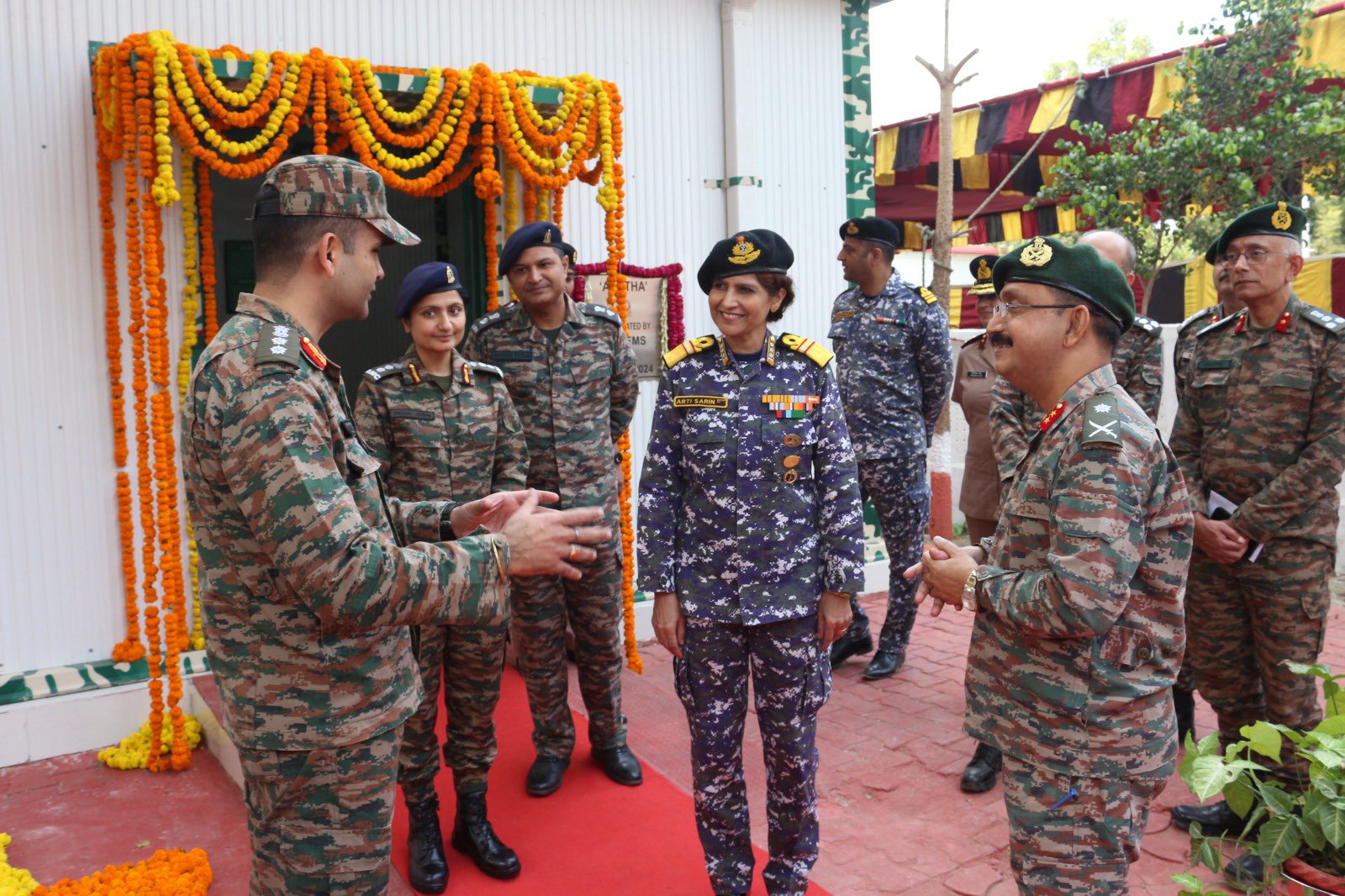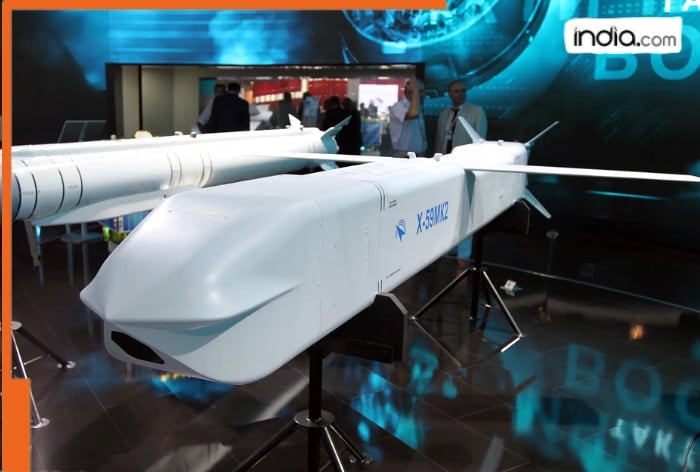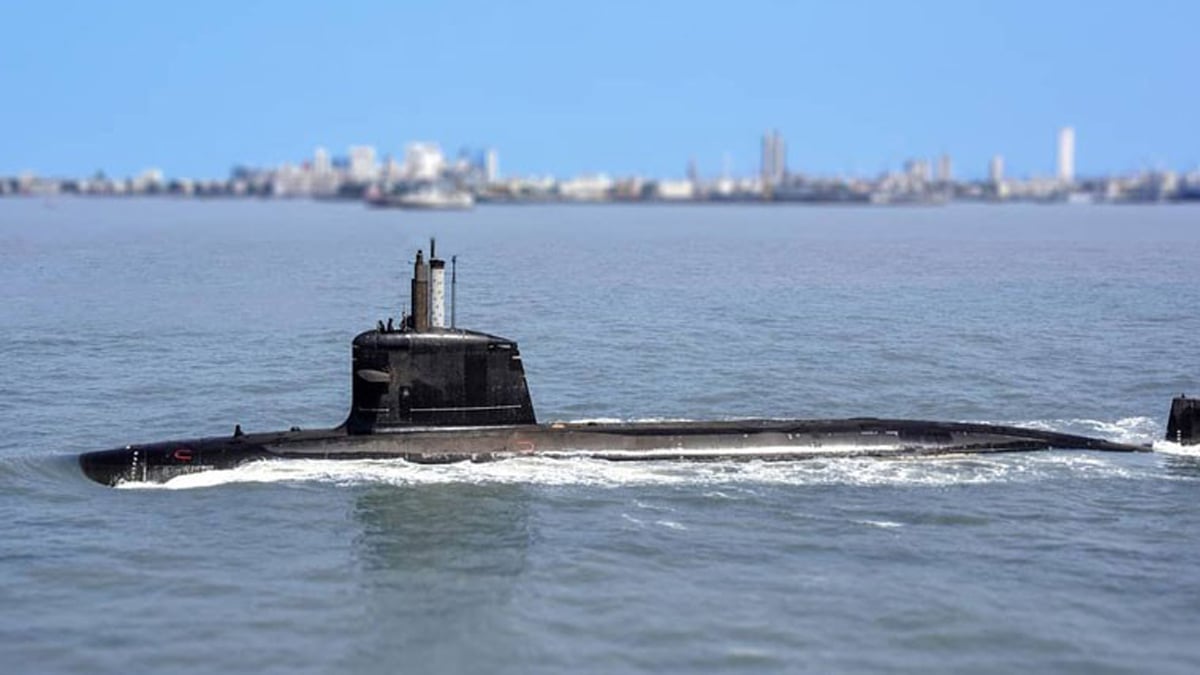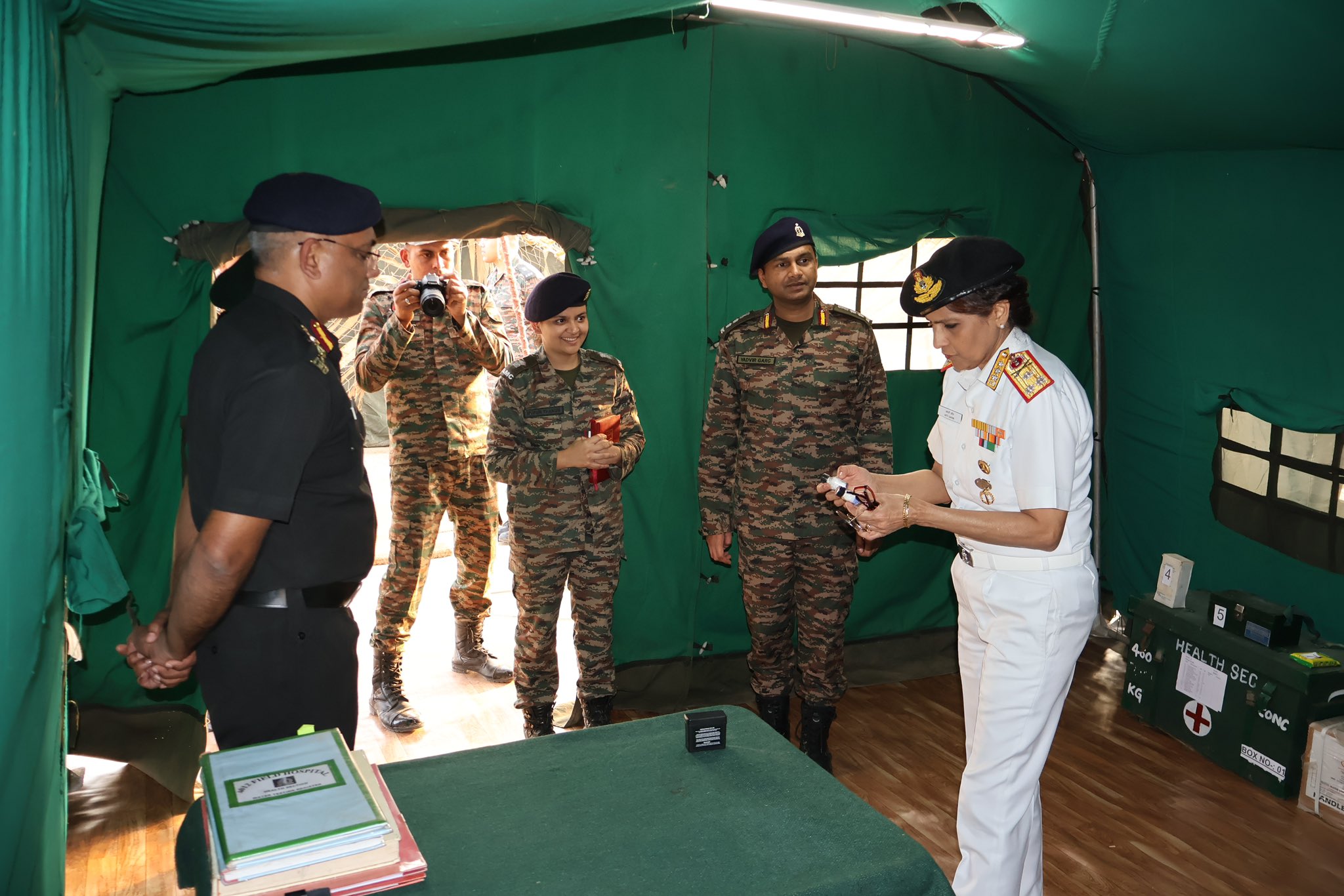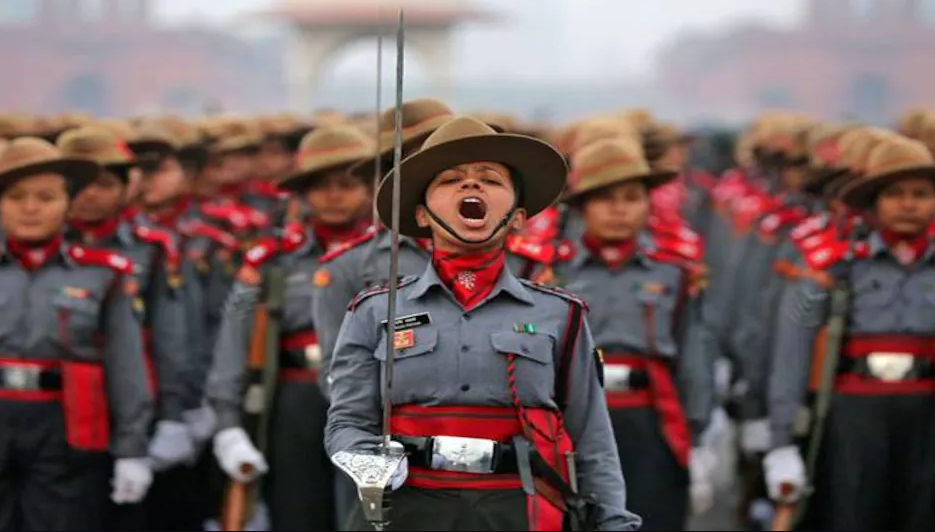Indian Navy to Celebrate Navy Day in Puri with President Murmu as Chief Guest
The Indian Navy is poised to celebrate Navy Day in Puri on December 4, with President Droupadi Murmu anticipated to…
Surg Vice Adm Arti Sarin Visits Oncology Patients at Command Hospital Central Command
Surgeon Vice Admiral Arti Sarin, AVSM, VSM, Director General Armed Forces Medical Services (DGAFMS), visited the Oncology and Onco-Surgery ward…
Russia Offers Advanced Kh-69 Stealth Missile to Indian Air Force, Challenging Regional Balance
In a significant development that could alter the balance of power in the region, Russia has proposed the advanced Kh-69…
France Offers Advanced Pumpjet Propulsion Technology to Enhance India’s Submarine Stealth Capabilities
In a significant development for the Indian Navy, France has proposed the adoption of advanced pumpjet propulsion technology for India's…
Vice Admiral Arti Sarin Inaugurates MRI Centre at Military Hospital Jodhpur
Surgeon Vice Admiral Arti Sarin, AVSM, VSM, Director General Armed Forces Medical Services (DGAFMS), visited the Konark Healers on November…
Indian Army’s DGMO Advocates for Gender Neutrality and Merit-Based Assessments for Women Officers
In a significant move towards enhancing gender equality within the armed forces, Lt General Rajeev Puri, the Director General of…


